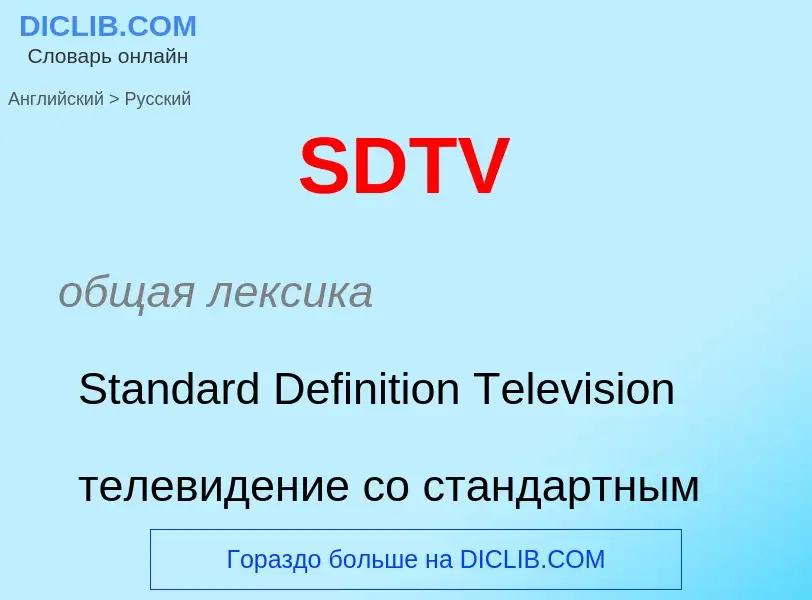Translation and analysis of words by ChatGPT artificial intelligence
On this page you can get a detailed analysis of a word or phrase, produced by the best artificial intelligence technology to date:
- how the word is used
- frequency of use
- it is used more often in oral or written speech
- word translation options
- usage examples (several phrases with translation)
- etymology
SDTV - translation to russian
общая лексика
Standard Definition Television
телевидение со стандартным разрешением
антоним
Wikipedia
Standard-definition television (SDTV, SD, often shortened to standard definition) is a television system which uses a resolution that is not considered to be either high or enhanced definition. "Standard" refers to it being the prevailing specification for broadcast (and later, cable) television in the mid- to late-20th century, and compatible with legacy analog broadcast systems.
The two common SDTV signal types are 576i, with 576 interlaced lines of resolution, derived from the European-developed PAL and SECAM systems, and 480i based on the American NTSC system. Common SDTV refresh rates are 25, 29.97 and 30 frames per second. Both systems use a 4:3 aspect ratio.
Standards that support digital SDTV broadcast include DVB, ATSC, and ISDB. The last two were originally developed for HDTV, but are also used for their ability to deliver multiple SD video and audio streams via multiplexing. In North America, digital SDTV is broadcast in the same 4:3 aspect ratio as NTSC signals, with widescreen content often being center cut. However, the aspect ratio of widescreen content may be preserved in a 4:3 frame through letterboxing. In other parts of the world that used the PAL or SECAM color systems, digital standard-definition television is now usually shown with a 16:9 aspect ratio, with the transition occurring between the mid-1990s and late-2000s depending on region. Older programs with a 4:3 aspect ratio are broadcast with a flag that switches the display to 4:3.
Digital SDTV eliminates the ghosting and noisy images associated with analog systems. However, if the reception has interference or is poor, where the error correction cannot compensate one will encounter various other artifacts such as image freezing, stuttering or dropouts from missing intra-frames or blockiness from missing macroblocks.

